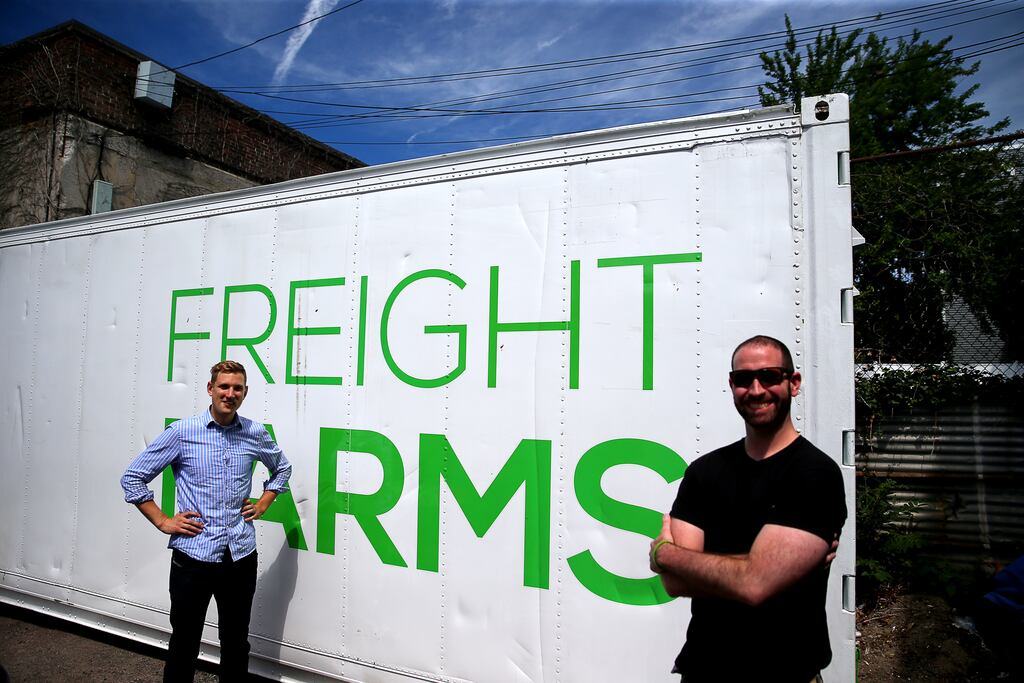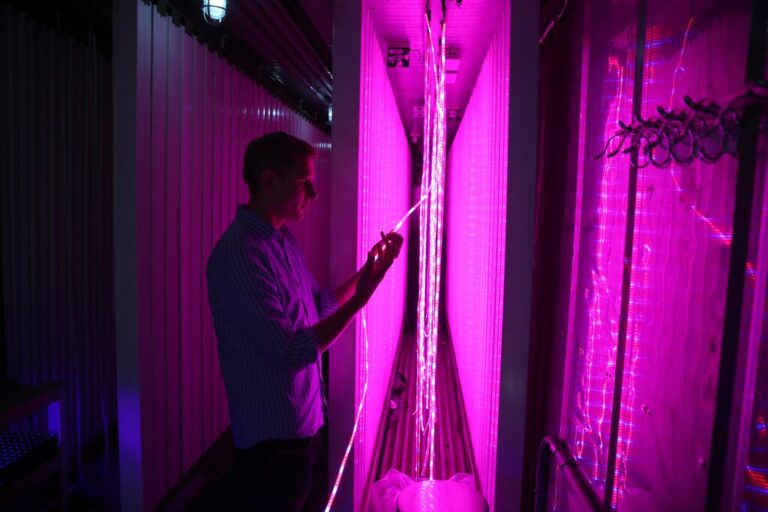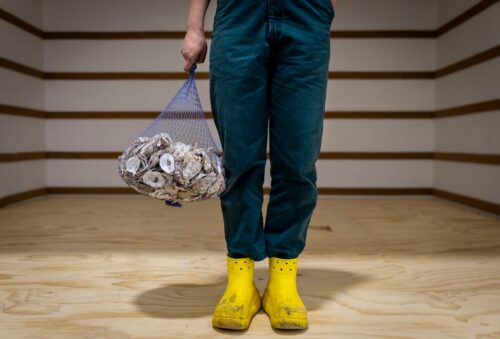Freight Farms, a Boston agricultural tech startup that launched with a mission to bring fresh food production to the masses with its souped-up shipping containers, has shut down and filed for bankruptcy.
The company ceased operations on April 30, it wrote in an email to clients, the same day it filed for Chapter 7 bankruptcy protection in federal bankruptcy court in Massachusetts.
“We thank each and every one of you for all that you bring to this community, and hope that you will carry on the mission to feed your communities and create the worlds you want to see through resilient, hyper-local food systems,” Freight Farms wrote in an email to clients, obtained by the Globe.
The company, which was incorporated in 2013 and headquartered on Old Colony Avenue in South Boston, grew out of a Kickstarter crowdfunding campaign. Over the years, it raised tens of millions of dollars in investments and amassed a wide variety of clients, ranging from the Boys & Girls Clubs of Metro South to Clark University in Worcester.
The company’s main product, dubbed the Greenery, was a hydroponic farm system, outfitted to grow lettuce, herbs, and root vegetables in any climate. It carried a price tag of more than $160,000.

In 2023, Freight Farms announced its intention to go public in a special purpose acquisition company deal that valued the firm at nearly $150 million, but that deal never came to fruition and was eventually dropped the following year.
The shutdown comes less than a year after the company appointed a new CEO, Brad Griffith. The end of the company appeared to catch cofounder and former CEO Brad McNamara by surprise.
“I actually found out about how bad it was via text from a couple [of] teammates who had just been laid off,” McNamara said in an interview posted on YouTube Wednesday. “I was caught a little unawares in terms of how to respond to all of that, and then I found out about the actual filing the same way the general public did.”
In its bankruptcy filing, the company reported it had about $7 million in liabilities and $600,000 in assets, with just $26,000 on hand. The filings also stated that Freight Farms is in the midst of two separate lawsuits — now both suspended — regarding financial obligations.
One was filed in January by Vermont-based Kalow Technologies, a manufacturing company that said it was enlisted by Freight Farms to build Greenery containers. In its lawsuit, Kalow accused Freight Farms of, among other things, fraud and breach of contract after it “knowingly mislead [sic] Kalow about Freight Farm’s capitalization, market share, and future market demand.”
The other lawsuit, filed in August by Brockton-based NorthEast Electrical, claimed that Freight Farms owed more than $200,000 for electrical goods and services. Freight Farms denied these charges.
Freight Farms built a network of more than 800 container farms, according to its website — and many of those growers are now scrambling to figure out their futures. In its email to clients, Freight Farm wrote that “several services may no longer be available,” including “remote control and monitoring of the farm.” It supplied various documents with information on how to keep individual farm systems up and running.
The email added that clients would “be contacted by a court-appointed trustee with more information.” Meanwhile, a public Facebook group sprung up for clients to swap stories and share information.
“I have decided to frame this like a natural disaster,” one user wrote. “Like Boston suffered a Cat 5 hurricane and we’ve lost connection with our mothership. We have to figure out how to move forward.”
Boston-based Freight Farms to go public in a nearly $150 million dealFreight Farms goes to schoolStartup that grows crops in shipping containers unveils sleek, new design




Comment count: